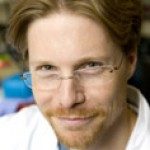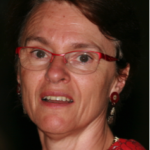About
Biofilms are universal traits of bacteria defined as mixed species communities characterized by high cell density, reduced diffusion and heterogeneous structures. These characteristics induce behaviors and phenotype that are not observed in planktonic microorganisms and help biofilm cells to respond to environmental fluctuations and stresses. It has been shown that C. difficile (CD) forms biofilms as a single species or with other anaerobic intestinal bacteria on different abiotic surfaces and in different systems. Several factors including cell surface components and regulators have been shown to influence biofilm formation. Moreover, some environmental factors were found to induce CD biofilm formation. Recently we demonstrated that bile salts strongly induces biofilm formation by CD and cells within this biofilm are protected against the toxicity of the secondary bile acid deoxycholate (DCA), antibiotics and antimicrobial peptides. Therefore, the ability of CD to form biofilms is likely to play an important role in its adaptive response to gastrointestinal stresses and re-colonization after antibiotherapy. To investigate the role of the biofilm form ation in the CD infection (CDI), we are working: i) on the molecular mechanisms modulating biofilm formation in response to bile salts, ii) on the other stress stimuli triggering biofilm formation/dispersal in the context of CDI and iii) on the dynamic of the co-biofilm formation between CD and some commensal anaerobes of the GI tract, such as Bacteroides thetaiotaomicron or Clostridium scindens (In coll. with Genetics of Biofilms unit ; JM Ghigo, IP)
ation in the CD infection (CDI), we are working: i) on the molecular mechanisms modulating biofilm formation in response to bile salts, ii) on the other stress stimuli triggering biofilm formation/dispersal in the context of CDI and iii) on the dynamic of the co-biofilm formation between CD and some commensal anaerobes of the GI tract, such as Bacteroides thetaiotaomicron or Clostridium scindens (In coll. with Genetics of Biofilms unit ; JM Ghigo, IP)






